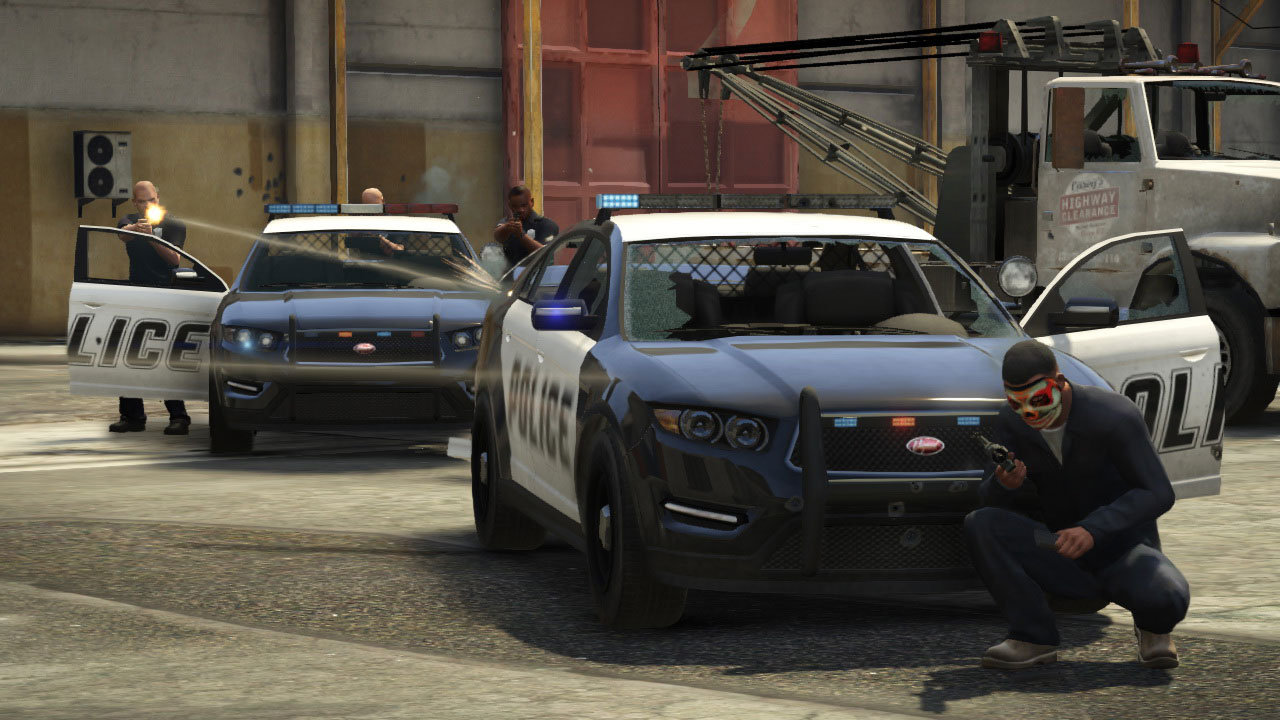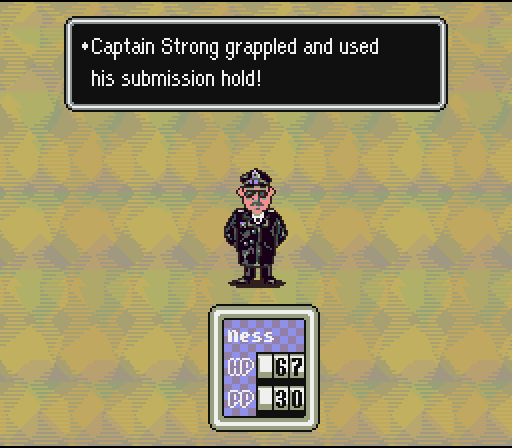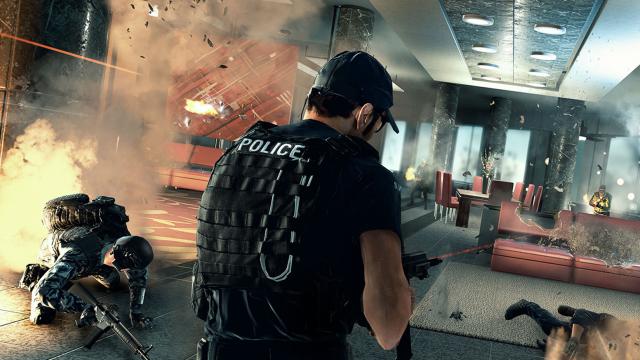The depiction of police in video games has taken many forms over the years. Officers might appear as antagonists exemplifying corruption and violence, or as benevolent forces doing their best to protect and serve. Recent weeks of protests against police brutality and racism have upended video games’ ability to depict the police as neutral arbiters of justice, which should make game developers reckon with how they will present the police in the future.
It is impossible to overstate how the protests of the last few weeks have affected every visible political landscape. The killings of George Floyd, Breonna Taylor, and Ahmaud Arbery have served as a wake-up call for some and a vicious reminder of the cycles of centuries of hate and unchecked authority for others. They prompted protests across the country and around the world, and statements of support even from companies that did their best to avoid such political statements in the past. So how will video games’ depiction of police also evolve?
In many ways, the Grand Theft Auto series is defined by the police opposition present in every title. Kotaku has reported that Rockstar’s next game is a new Grand Theft Auto, in which police will no doubt play an important gameplay role. With force designated by a star-rating in the corner of the screen, police come after players in everything from squad cars to helicopters after the player has invoked their wrath with illegal behaviour. But it feels increasingly silly to consider that police confrontation requires laws to be broken to invoke a proportionate response. I am not here saying that Rockstar needs to change this or risk its credibility, but I am wondering aloud if such a thing is even on its radar. The targeted caricature of Grand Theft Auto quickly falls apart when the world Rockstar’s designers are satirizing becomes stranger than their own conceptions of it.

In Grand Theft Auto, the police are more of a neutral arbiter of the player’s skill at committing crimes without getting caught. In other games, they’re presented as a more definitively positive force. When Sony released Spider-Man in 2018, I felt uneasy with the game’s portrayal of police in the fictionalized New York City. It idealised a police force that easily works with the masked superhero, and a protagonist who himself wished to play dress-up in blue. Despite the occasional tilting of this portrait, Spider-Man’s story and world were not a representation of the kind of New York that exists outside the TV screen. The gameplay largely reinforced that Spider-Man himself was the moral ideal of law enforcement, always struggling to do good, then leaving it to the police to enforce the legal side of his actions. It was, if nothing else, fantastical escapism from a dreary world where that rarely if ever felt true.
I pushed my feelings down as inconsequential to the greater whole. But given recent events, it is difficult not to reflect back on how Spider-Man and other video games offer a rigidly positive portrayal of police. That uneasiness, born from the game’s utopian depiction of law enforcement, has begun to crystallize for many. Many video games depict police as purely altruistic, not reflecting any of the bitter reality of prejudice and violence. Those that might not have understood that before are now starting to get it, and that might be a problem for future video games.
This week, Sony announced a PlayStation 5 sequel to Spider-Man starring Miles Morales. It will release into a world quite different from its predecessor, especially considering that it stars a black protagonist living in New York City. People will not be able to feign ignorance about police violence and racism being organised and systemic, so how well can a video game do at pretending that the real world should not impact it?
Many game developers will very likely find themselves at a crossroads with upcoming projects. The games will either be seen as publicly supporting causes like resistance against police brutality and black civil rights, or reinforcing a propagandist call to trust police as morally pure heroes. The protests over the last few weeks, and the heavy-handed police response that has hurt, maimed, or killed too many people, should be giving creators in all types of media pause. The cancellation of the long-running television show Cops is indicative of prevailing winds; decades of pro-police entertainment have hit a wall that once seemed perfectly permeable to creators. Video games should expect to feel that same impact.

It would be easy to brush off these concerns with the assumptions that the real world’s darkest hours have no place within the escapism of games. It was, after all, a simple matter to ignore the queasiness I felt at Spider-Man and immerse myself in its other aspects, so I understand the temptation. The gaming industry, while maybe not always being conscientious agents of social change, are certainly aware that they can affect it. The power to tell stories that exert influence can be used to reverse that idea, entrenched though it may be.
It is not like the gaming industry can claim they did not see this particular backlash coming. Electronic Arts found itself on the wrong side of history with 2015’s Battlefield: Hardline, a clumsy attempt to bring the Battlefield series’ military lineage to bear on the nation’s police force. The developers at Visceral openly bragged about how warlike and cool the police and SWAT teams could be, as a means of explaining the virtues of a police-led Battlefield title. There wasn’t much of a sustained conversation around Hardline, but that was probably because the game itself wasn’t particularly well-received. EA went back to historical military shooters and has not returned to the police motif since.

Not all games are entirely trustful of police, often presenting them as inordinate threats to civilians. In the 1995 Super Nintendo role-playing game EarthBound, Ness finds himself dealing with belligerent, incompetent police who very quickly resort to violence. While these examples can hew surprisingly close to an uncomfortable reality, they’re also few and far between. They sit on a line of absurdity because it is difficult for some people to believe, after years of entertainment conditioning them otherwise, that the police as a group could be anything other than protective.
Media has the ability to entertain, but it also reinforces what we believe society to be about. Neither movies, television, nor most other forms of entertainment are free from sin when it comes to running public relations campaigns for police, but video games can choose to draw their line in the sand. If there is not currently someone at Spider-Man developer Insomniac telling colleagues that they knew this was going to happen, then that is a problem, because it means there wasn’t a voice in the room that understood the larger issues at play in a silly joke or lighthearted story.
Racial tensions coupled with an imbalance in authority are problems that affect every country in the world in different forms, and game developers of every race and creed will emerge from this moment taking something different away from it. In the realm of triple-A gaming, which has always discouraged running too fast or going too far with its messaging, we can only hope that there are members of the team making the argument that the virtual world is not disconnected from our own — and that those in charge are listening to them.
No one ever asks for the responsibility of making a better world, but it is a tragedy to let that burden fall to our shoulders and ignore it. A Spider-Man sequel should reckon with the fact that police would treat Miles Morales differently from Peter Parker. Whether this ends up being a transformative step or not, it is still a step, and one that is worth taking. There’s something about great power and responsibility that applies here, that maybe the video game industry will pick up on.
Imran Khan is a former senior editor at Game Informer and occasional cohost at Kinda Funny. He can be found trying to pick away at his never-ending backlog or on Twitter @imranzomg.

Comments
13 responses to “Video Games Have To Reckon With How They Depict The Police”
Or they could continue to present law enforcement as mostly good as they have previously so that it, oh I dunno, reflects actual reality.
Or are we seriously arguing that the corrupt members in law enforcement are the majority now?
I mean, I know we’ve basically hit the digital age equivalent of book burning and erasing history now with removing problematic TV shows/movies that apparently weren’t problematic a week ago… So at least let us know whether Kotaku thinks law enforcement sit in the majority evil in order to account for such a shift to their representation in video games.
My 4yr old nephew is going to have to learn some hard lessons when I sit him down to tell him why PAW Patrol was cancelled…
You’ve just set up a black and white argument (heh). Nobody’s said that the police are mostly corrupt, or ‘evil’, nice straw man. We’re not talking about police being drug dealers or hit men (although that does happen too). The argument is about how the police often unconsciously, and sometimes wilfully, sometimes because they’ve become exhausted and jaded, sometimes because they have PTSD, or whatever, use vastly more force than is warranted to get the job done, and sometimes exercise their powers in a way that effects different people unequally simply because of the colour of their skin.
There’s literally no difference between ‘mostly good’ and ‘occasionally behave like fuckwits’. It’s not an either/or thing, police can both rescue the cats of little old ladies from trees and also shatter a completely innocent man’s arm and shoulder joint in multiple places because the police fucked up.
We’re constantly told what big heroes the police are. It’s time for the profession to live up to that job description and take responsibility for its own shit. But if it’s not going to happen, as you advocate it shouldn’t, then yeah, games should reflect that reality.
Nothing wrong with presenting an idealised image. It’s just that some people get super disappointed when they realise that the image was idealised, and not a mirror of reality. I don’t think we should pander to people with a problem distinguishing fantasy and reality. If we become that society, we will soon be burning #DegenerateArt.
“games should reflect that reality”
games as a whole should not reflect reality they are about escapism but i don’t think that u meant all games.
forcibly shoehorning political messaging into games is a bad idea that always results in poor sales, gamers have established repeatedly that they don’t want propaganda forced into games whether its intersectional feminists, BLM or the KKK.
American police =/= all police worldwide.
If the depiction of police in video games hurts your fee fees that much you need a reality check.
Remember when people were up in arms about the negative stereotyping of portraying people from Arab/Muslim countries as terrorists in video games because “not all Arabs/Muslims are terrorists and not all terrorists are Arab/Muslim”…
I find it funny how those same people are now arguing this nonsense…
Pretty easy to rag on the police…. until you need them. These people deserve better than to be collectively tarnished by the actions of a few bad eggs.
yep a couple bad actors (which you will find in literally ANY group of people on the planet) and suddenly its politically correct to hate the police and youre a racist if you support the police. these people risk their lives daily to ensure we can live in a safe and ordered society. call someone out when they do the wrong thing, but this collective f the police helps no one.
I don’t think you could claim “a couple” with all the wrongdoings the police in the US have committed and fellow officers standing by their side in the majority of case where the weight of the law was as light as a feather. There is an abundant abuse of power and many many good police officers, a lot of racial profiling and weight throwing even from the “good ones” in a profession where the devastating majority should be recognised as good. Read up about a police force being disbanded and then a new one being formed for the same locality and how their efficiency went through the roof.
It’s a bit extreme to depict all cops as bad guys in video games which I don’t think this article is advocating but there’s more than a couple, even if you were to scale the numbers.
Side note- cops around there world aren’t that great either, this could be more systemic and of an economic issue.
So you’ve never in your life stood by while a co-worker or such did something you didn’t agree with? Not once, for any reason?
Fear for your own well being, your job, etc?
If your answer is no, then I have to say I just really wasn’t aware we had mythical beings that don’t exist posting here.
It’s not just a job where coworkers back each other even if they’ve been a bit of a dick. We’re talking about a profession that has a state-sanctioned right to arrest and even sometimes kill citizens as part of their job description, mostly with little if any sanction if they step over the line or make a mistake. We have every right, under the circumstances, to hold police to a higher standard.
We’re also constantly told about how good these ‘heroes’ are, and how motivated they are to ‘protect and serve’, and how much we owe them. Well it’s time to live up to the rhetoric. The police are either average guys just doing a job or they’re heroes. The police need to chose, because they can’t have it both ways.
@angorafish
what your forgetting is that those other officers had they stepped in then have to rely on the guy they just reprimanded and all the other police that now consider you a snitch to have ur back in life threatening situations.
what about the police officers who do the right thing and end up abandoned by their colleagues because they went against the culture.
the rhetoric has now gone beyond ridiculous, disbanding the police is absurd.
banning choke holds, reforming and removing protections that shield these kind of police from consequences, and reforming the culture that police have that sets a ‘them vs us’ mentality are all good steps but the narrative has blown right past reasonable reforms into madness and stupidity.
there is no easy fix for this problem and there is no easily defined group responsible, the black community in america also shares responsibility for the adversarial relationship it has with police something nobody seems to want to admit.